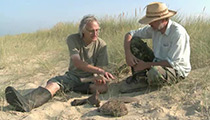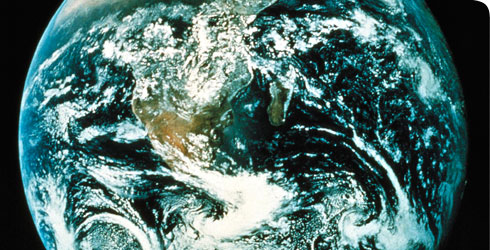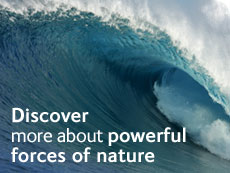Earth
Our planet is a blue one, with most of the surface area made up of water. Deep within the oceans, we have discovered that life can exist without the sun’s energy. Investigate how the study of rocks, minerals and fossils can also enlighten scientists about the world around us and how knowledge of the past can help us predict our planet’s future survival.
-

Rocks and minerals
Geology is crucial to understanding the world around us, including how our planet evolved and what might happen to it in the future. Dig deeper to discover more about this intriguing science and the Museum’s work within it.
-

Natural disasters
Investigate powerful natural phenomena that shape our world and explore their impacts.
-

Fossils
Go back in time and discover the stories that fossils can reveal about plants and animals of the past.
-

The oceans
Hydrothermal vents could hold secrets to the origins of life on Earth and other planets. Dive in for a closer look and see what else the oceans can tell us.
-

Antarctica
Explore some of the discoveries scientists are making in Antarctica and how they reveal possible signs of changes in the future. Experience life in Antarctica through the stories and pictures of conservators working to preserve the huts and provisions used on historic expeditions over 100 years ago.
-

Plate tectonics
Learn about the giant plates that make up the Earth's surface, how their movement continues to transform our planet, and why earthquakes and volcanoes are common at their boundaries.

New video: Clues to Britain’s own ancient Atlantis
A treasure trove of fossils found on a UK beach could point scientists to the world's oldest undersea archaeological site.
Museum archaeologist Simon Parfitt discusses the finds.

